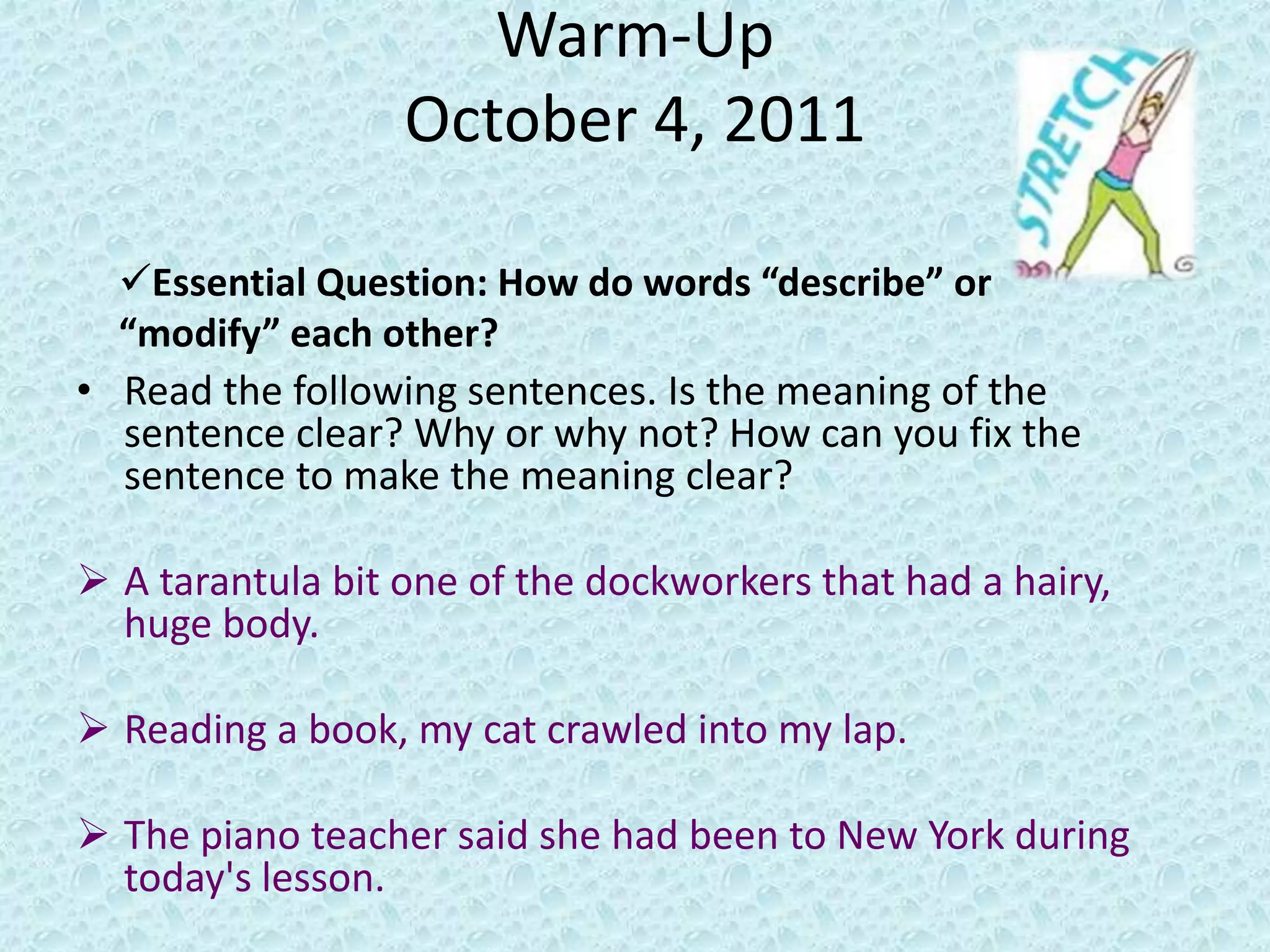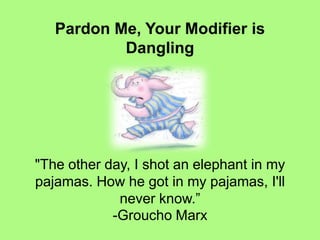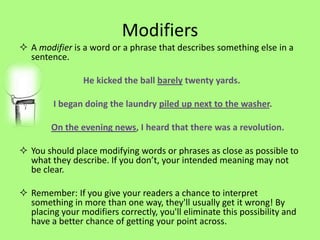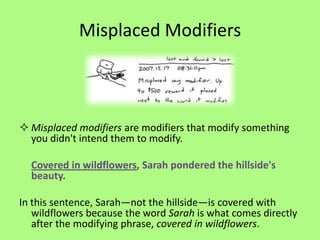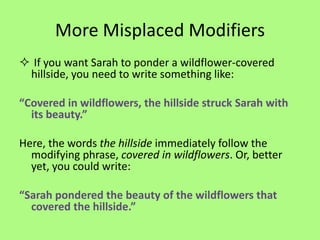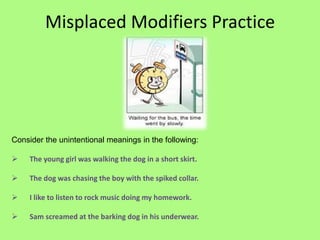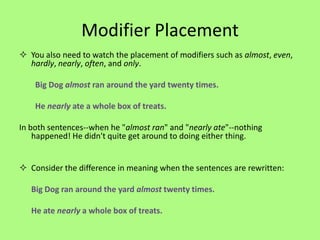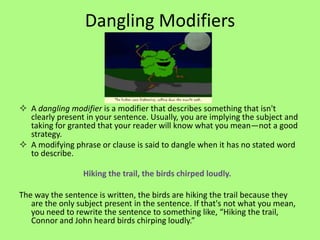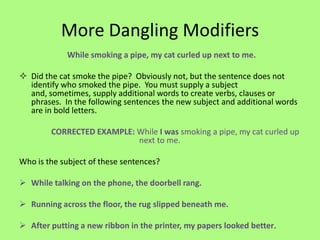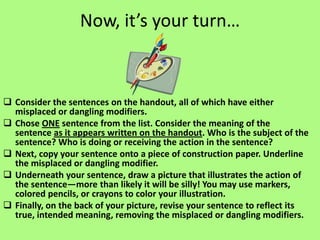The document discusses modifiers and how they can be misplaced or dangling, leading to unclear or unintended meanings. It provides examples of misplaced and dangling modifiers and explains how to identify and correct them by placing the modifier as close as possible to what it describes. The document also notes that some modifiers like "almost" and "nearly" can change the meaning depending on their placement in the sentence.
